- Home
- Haruki Murakami
First Person Singular
First Person Singular Read online
ALSO BY HARUKI MURAKAMI
FICTION
1Q84
After Dark
After the Quake
Blind Willow, Sleeping Woman
Colorless Tsukuru Tazaki and His Years of Pilgrimage
Dance Dance Dance
The Elephant Vanishes
Hard-Boiled Wonderland and the End of the World
Kafka on the Shore
Killing Commendatore
Norwegian Wood
South of the Border, West of the Sun
Sputnik Sweetheart
The Strange Library
A Wild Sheep Chase
Wind/Pinball
The Wind-Up Bird Chronicle
NONFICTION
Absolutely on Music
(with Seiji Ozawa)
Underground: The Tokyo Gas Attack and the Japanese Psyche
What I Talk About When I Talk About Running: A Memoir
THIS IS A BORZOI BOOK
PUBLISHED BY ALFRED A. KNOPF
Copyright © 2020 by Haruki Murakami
English-language translation copyright © 2021 by Haruki Murakami
All rights reserved. Published in the United States by Alfred A. Knopf, a division of Penguin Random House LLC, New York. Originally published in Japan as Ichininsho Tansu by Bungei Shunju Ltd., Tokyo, in 2020. Copyright © 2020 by Haruki Murakami.
www.aaknopf.com
Knopf, Borzoi Books, and the colophon are registered trademarks of Penguin Random House LLC.
Photograph on this page by Ulana Switucha / Alamy
Some stories first appeared in the following publications: “Cream” first appeared in The New Yorker (January 2019), “On a Stone Pillow” first appeared in Freeman’s (October 2020), “Charlie Parker Plays Bossa Nova” first appeared in Granta (August 2019), “With the Beatles” first appeared in The New Yorker (February 2020), and “Confessions of a Shinagawa Monkey” first appeared in The New Yorker (June 2020).
Library of Congress Cataloging-in-Publication Data
Names: Murakami, Haruki, [date] author. | Gabriel, Philip, [date] translator.
Title: The first person singular : stories / Haruki Murakami ; translated from the Japanese by Philip Gabriel.
Other titles: Ichininsho Tansu. English
Description: First edition. | New York : Alfred A. Knopf, 2021. | “This is a Borzoi book”
Identifiers: LCCN 2020028991 | ISBN 9780593318072 (hardcover) | ISBN 9780593318089 (ebook)
Classification: LCC PL856.U673 A2 2021 | DDC 895.63/5—dc23
LC record available at https://lccn.loc.gov/2020028991
Ebook ISBN 9780593318089
This is a work of fiction. Names, characters, places, and incidents either are the product of the author’s imagination or are used fictitiously. Any resemblance to actual persons, living or dead, events, or locales is entirely coincidental.
Cover photograph by Brent Landreth / Alamy
Cover design by Chip Kidd
ep_prh_5.6.1_c0_r0
CONTENTS
Cream
On a Stone Pillow
Charlie Parker Plays Bossa Nova
With the Beatles
Confessions of a Shinagawa Monkey
Carnaval
The Yakult Swallows Poetry Collection
First Person Singular
CREAM
So I’m telling a younger friend of mine about a strange incident that took place back when I was eighteen. I don’t recall exactly why I brought it up. It just happened to come up as we were talking. I mean, it was something that happened long ago. Ancient history. On top of which, I was never able to reach any conclusion about it.
“I’d already graduated from high school then, but wasn’t in college yet,” I explained. “I was what’s called an academic ronin, a student who fails the university entrance exam and is waiting to try again. Things felt kind of up in the air,” I went on, “but that didn’t bother me much. I knew that I could get into a halfway-decent private college if I wanted to. But my parents had insisted that I try for a national university, so I took the exam, knowing all along that it’d be a bust. And, sure enough, I failed. The national university exam back then had a mandatory math section, and I had zero interest in calculus. I spent the next year basically killing time, as if I were creating an alibi. Instead of attending cram school to prepare to retake the exam, I hung out at the local library, plowing my way through thick novels. My parents must have assumed that I was studying there. But, hey, that’s life. I found it a lot more enjoyable to read all of Balzac than to delve into the principles of calculus.”
At the beginning of October that year, I received an invitation to a piano recital from a girl who’d been a year behind me in school and had taken piano lessons from the same teacher as I had. Once, the two of us had played a short four-hands piano piece by Mozart. When I turned sixteen, though, I’d stopped taking lessons, and I hadn’t seen her after that. So I couldn’t figure out why she’d sent me this invitation. Was she interested in me? No way. She was attractive, for sure, though not my type in terms of looks; she was always fashionably dressed and attended an expensive private girls’ school. Not at all the kind to fall for a bland, run-of-the-mill guy like me.
When we played that piece together, she gave me a sour look every time I hit a wrong note. She was a better pianist than I was, and I tended to get overly tense, so when the two of us sat side by side and played I bungled a lot of notes. My elbow bumped against hers a few times as well. It wasn’t such a difficult piece, and, moreover, I had the easier part. Each time I blew it, she had this “Give me a break” expression on her face. And she’d click her tongue—not loudly, but loud enough that I could catch it. I can still hear that sound, even now. That sound may even have had something to do with my decision to give up the piano.
At any rate, my relationship with her was simply that we happened to study in the same piano school. We’d exchange hellos if we ran into each other there, but I have no memory of our ever sharing anything personal. So suddenly receiving an invitation to her recital (not a solo recital, but a group recital with three pianists) took me completely by surprise—in fact, had me baffled. But one thing I had in abundance that year was time, so I sent off the reply postcard, saying that I would attend. One reason I did this was that I was curious to find out what lay behind the invitation—if, indeed, there was a motive. Why, after all this time, send me an unexpected invitation? Maybe she had become much more skilled as a pianist and wanted to show me that. Or perhaps there was something personal that she wished to convey to me. In other words, I was still figuring out how best to use my sense of curiosity, and banging my head against all kinds of things in the process.
The recital hall was at the top of one of the mountains in Kobe. I took the Hankyu train line as close as I could, then boarded a bus that made its way up a steep, winding road. I got off at a stop near the very top, and after a short walk arrived at the modest-sized concert venue, which was owned and managed by an enormous business conglomerate. I hadn’t known that there was a concert hall here, in such an inconvenient spot, at the top of a mountain, in a quiet, upscale residential neighborhood. As you can imagine, there were plenty of things in the world that I didn’t know about.
I’d felt that I should bring something to show my appreciation for having been invited, so at a florist’s near the train station I had selected a bunch of flowers that seemed to fit the occasion and had them wrapped as a bouquet. The bus had shown up just then, and I’d hopped aboard. It was a chilly Sunday afternoon
. The sky was covered with thick gray clouds, and it looked as though a cold rain might start at any minute. There was no wind, though. I was wearing a thin, plain sweater under a gray herringbone jacket with a touch of blue, and I had a canvas bag slung across my shoulder. The jacket was too new, the bag too old and worn out. And in my hands was this gaudy bouquet of red flowers wrapped in cellophane. When I got on the bus decked out like that, the other passengers kept glancing at me. Or maybe it just seemed as if they did. I could feel my cheeks turning red. Back then, I blushed at the slightest provocation. And the redness took forever to go away.
“Why in the world am I here?” I asked myself as I sat hunched over in my seat, cooling my flushed cheeks with my palms. I didn’t particularly want to see this girl, or hear the piano recital, so why was I spending all my allowance on a bouquet, and traveling all the way to the top of a mountain on a dreary Sunday afternoon in November? Something must have been wrong with me when I dropped the reply postcard in the mailbox.
The higher up the mountain we went, the fewer passengers there were on the bus, and by the time we arrived at my stop only the driver and I were left. I got off the bus and followed the directions on the invitation up a gently sloping street. Each time I turned a corner, the harbor came briefly into view and then disappeared again. The overcast sky was a dull color, as if blanketed with lead. There were a lot of cranes down in the harbor, jutting into the air like the antennae of some ungainly creatures that had crawled out of the ocean.
The houses near the top of the slope were large and luxurious, with massive stone walls, impressive front gates, and two-car garages. The azalea hedges were all neatly trimmed. I heard what sounded like a huge dog barking somewhere. It barked loudly three times, and then, as if someone had scolded it severely, it abruptly stopped, and all around became quiet.
* * *
—
As I followed the simple map on the invitation, I was struck by a vague, disconcerting premonition. Something just wasn’t right. First of all, there was the lack of people in the street. Since getting off the bus, I hadn’t seen a single pedestrian. Two cars did drive by, but they were on their way down the slope, not up. If a recital was really about to take place here, I would have expected to see more people. But the whole neighborhood was still and silent, as if the dense clouds above had swallowed up all sound.
Had I misunderstood?
I took the invitation out of my jacket pocket to recheck the information. Maybe I’d misread it. I went over it carefully, but I couldn’t find anything wrong. I had the right street, the right bus stop, the right date and time. I took a deep breath to calm myself and set off again. The only thing I could do was get to the concert hall and see.
When I finally arrived at the building, the large steel gate was locked tight. A thick chain ran around the gate and was held in place by a heavy padlock. No one else was around. Through a narrow opening in the gate, I could see a fair-sized parking lot, but not a single car was parked there. Weeds had sprouted between the paving stones, and the parking lot looked as if it hadn’t been used in quite some time. Despite all that, the large nameplate at the entrance told me that this was indeed the recital hall I was looking for.
I pressed the button on the intercom next to the entrance, but no one responded. I waited a bit, then pressed the button again, but still no answer. I looked at my watch. The recital was supposed to start in fifteen minutes. But there was no sign that the gate would be opened. Paint had peeled off it in spots, and it was starting to rust. I couldn’t think of anything else to do, so I pressed the intercom button one more time, holding it down longer, but the result was the same as before—deep silence.
With no idea what to do, I leaned back against the heavy steel gate and stood there for some ten minutes. I had a faint hope that someone else might show up before long. But no one came. There was no sign of any movement, either inside the gate or outside. There was no wind. No birds chirping, no dogs barking. As before, an unbroken blanket of gray cloud lay above.
I finally gave up—what else could I do?—and with heavy steps started back down the street toward the bus stop, totally in the dark about what was going on. The only clear thing about the whole situation was that there wasn’t going to be a piano recital or any other event held here today. All I could do was head home, bouquet of red flowers in hand. My mother would doubtless ask, “What’re the flowers for?,” and I would have to give some plausible answer. I wanted to toss them in the trash can at the station, but they were—for me, at least—kind of expensive to just throw away.
Down the hill a short distance, there was a cozy little park, about the size of a house lot. On the far side of the park, away from the street, was an angled natural rock wall. It was barely a park—it had no water fountain or playground equipment. All that was there was a little arbor, plunked down in the middle. The walls of the arbor were slanted latticework, overgrown with ivy. There were bushes around it, and flat square stepping stones on the ground. It was hard to say what the park’s purpose was, but someone was regularly taking care of it; the trees and bushes were smartly clipped, with no weeds or trash around. On the way up the hill, I’d walked right by the park without noticing it.
I went into the park to gather my thoughts and sat down on a bench in the arbor. I felt that I should wait in the area a little longer to see how things developed (for all I knew, people might suddenly appear), and once I sat down I realized how tired I was. It was a strange kind of exhaustion, as though I’d been worn out for quite a while but hadn’t noticed it, and only now had it hit me. From the arbor, there was a panoramic view of the harbor. A number of large container ships were docked at the pier. From the top of the mountain, the stacked metal containers looked like nothing more than the small tins you keep on your desk to hold coins or paper clips.
After a while, I heard a man’s voice in the distance. Not a natural voice, but one amplified by a loudspeaker. I couldn’t catch what was being said, but there was a pronounced pause after each sentence, and the voice spoke precisely, without a trace of emotion, as if trying to convey something extremely important as objectively as possible. It occurred to me that maybe this was a personal message directed at me, and me alone. Someone was going to the trouble of telling me where I’d gone wrong, what it was that I’d overlooked. Not something I would normally have thought, but for some reason it struck me that way. I listened carefully. The voice got steadily louder and easier to understand. It must have been coming from a loudspeaker on the roof of a car that was slowly wending its way up the slope, seemingly in no hurry at all. Finally, I realized what it was: a car broadcasting a Christian message.
“Everyone will die,” the voice said in a calm monotone. “Every person will eventually pass away. No one can escape death or the judgment that comes afterward. After death, everyone will be severely judged for his sins.”
I sat there on the bench, listening to this message. I found it strange that anyone would do mission outreach in this deserted residential area up on top of a mountain. The people who lived here all owned multiple cars and were affluent. I doubted that they were seeking salvation from sin. Or maybe they were? Income and status might be unrelated to sin and salvation.
“But all those who seek salvation in Jesus Christ and repent of their sins will have their sins forgiven by the Lord. They will escape the fires of Hell. Believe in God, for only those who believe in Him will reach salvation after death and receive eternal life.”
I was waiting for the Christian-mission car to appear on the street in front of me and say more about the judgment after death. I think I must have been hoping to hear words spoken in a reassuring, resolute voice, no matter what they were. But the car never showed up. And, at a certain point, the voice began to grow quieter, less distinct, and before long I couldn’t hear anything anymore. The car must have turned in another direction, away from where I was. When that ca
r disappeared, I felt as though I’d been abandoned by the world. A sudden thought hit me: Maybe the whole thing was a hoax that the girl had cooked up. This idea—or hunch, I should say—came out of nowhere. For some reason that I couldn’t fathom, she’d deliberately given me false information and dragged me out to the top of a remote mountain on a Sunday afternoon. Maybe I had done something that had caused her to form a personal grudge against me. Or maybe, for no special reason, she found me so unpleasant that she couldn’t stand it. And she’d sent me an invitation to a nonexistent recital and was now gloating—laughing her head off—seeing (or, rather, imagining) how she’d fooled me and how pathetic and ridiculous I looked.
Okay, but would a person really go to all the trouble of coming up with such a complicated plot in order to harass someone, just out of spite? Even printing up the postcard must have taken some effort. Could someone really be that mean? I couldn’t remember a thing I’d ever done to make her hate me that much. But sometimes, without even realizing it, we trample on people’s feelings, hurt their pride, make them feel bad. I speculated on the possibility of this not-unthinkable hatred, the misunderstandings that might have taken place, but found nothing convincing. And as I wandered fruitlessly through this maze of emotions, I felt my mind losing its way. Before I knew it, I was having trouble breathing.
This used to happen to me once or twice a year. I think it must have been stress-induced hyperventilation. Something would fluster me, my throat would constrict, and I wouldn’t be able to get enough air into my lungs. I’d panic, as if I were being swept under by a rushing current and were about to drown, and my body would freeze. All I could do at those times was crouch down, close my eyes, and patiently wait for my body to return to its usual rhythms. As I got older, I stopped experiencing these symptoms (and, at some point, I stopped blushing so easily, too), but in my teens I was still troubled by these problems.

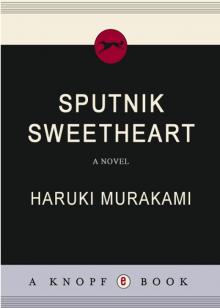 Sputnik Sweetheart
Sputnik Sweetheart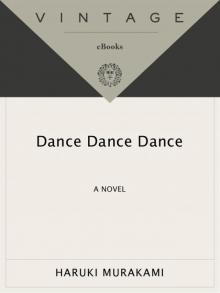 Dance Dance Dance
Dance Dance Dance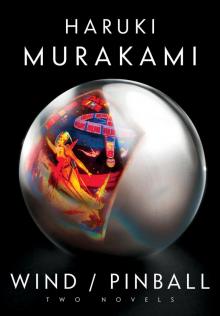 The Wind (1) and Up Bird Chronicle (2)
The Wind (1) and Up Bird Chronicle (2) Blind Willow, Sleeping Woman
Blind Willow, Sleeping Woman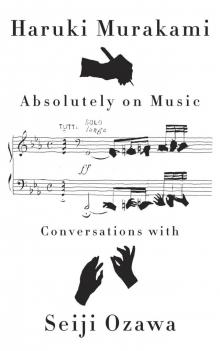 Absolutely on Music: Conversations With Seiji Ozawa
Absolutely on Music: Conversations With Seiji Ozawa Norwegian Wood
Norwegian Wood South of the Border, West of the Sun
South of the Border, West of the Sun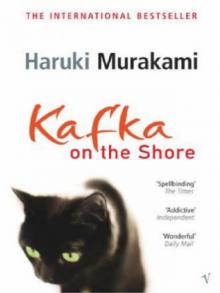 Kafka on the Shore
Kafka on the Shore Men Without Women
Men Without Women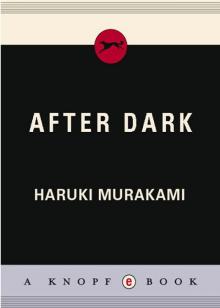 After Dark
After Dark Hard-Boiled Wonderland and the End of the World
Hard-Boiled Wonderland and the End of the World 1q84
1q84 The Wind-Up Bird Chronicle
The Wind-Up Bird Chronicle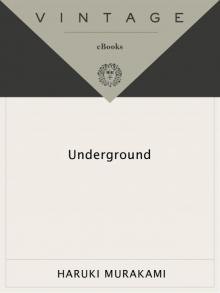 Underground: The Tokyo Gas Attack and the Japanese Psyche
Underground: The Tokyo Gas Attack and the Japanese Psyche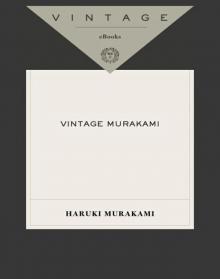 Vintage Murakami
Vintage Murakami The Elephant Vanishes: Stories
The Elephant Vanishes: Stories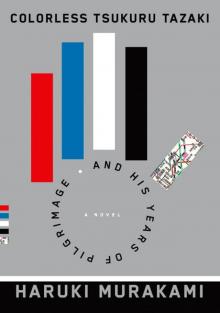 Colorless Tsukuru Tazaki and His Years of Pilgrimage
Colorless Tsukuru Tazaki and His Years of Pilgrimage First Person Singular
First Person Singular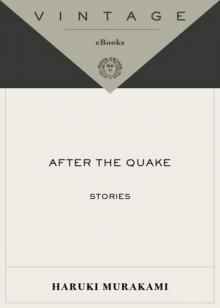 After the Quake
After the Quake A Wild Sheep Chase
A Wild Sheep Chase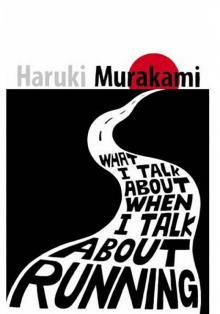 What I Talk About When I Talk About Running
What I Talk About When I Talk About Running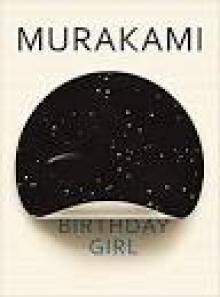 Birthday Girl
Birthday Girl The Elephant Vanishes
The Elephant Vanishes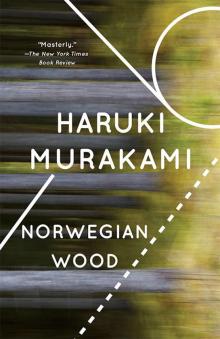 Norwegian Wood (Vintage International)
Norwegian Wood (Vintage International)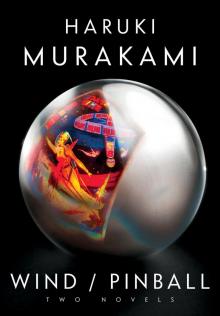 Wind/Pinball
Wind/Pinball Norwegian Wood Vol 1.
Norwegian Wood Vol 1. Underground
Underground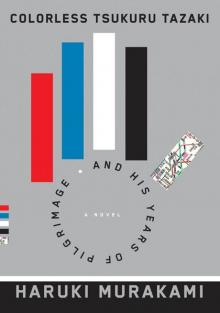 Colorless Tsukuru Tazaki and His Years of Pilgrimage: A novel
Colorless Tsukuru Tazaki and His Years of Pilgrimage: A novel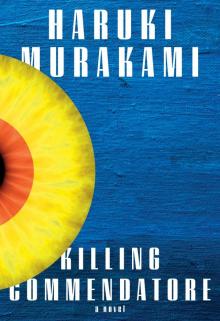 Killing Commendatore
Killing Commendatore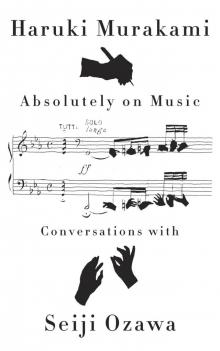 Absolutely on Music
Absolutely on Music